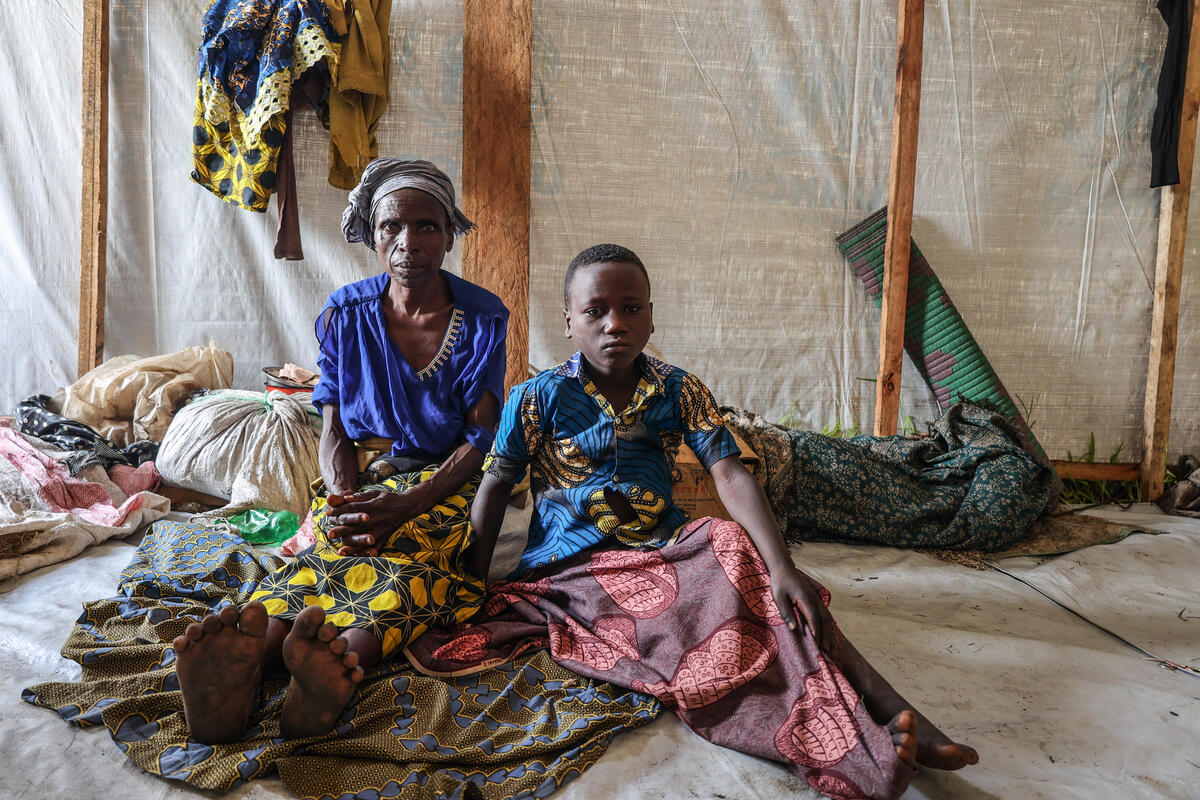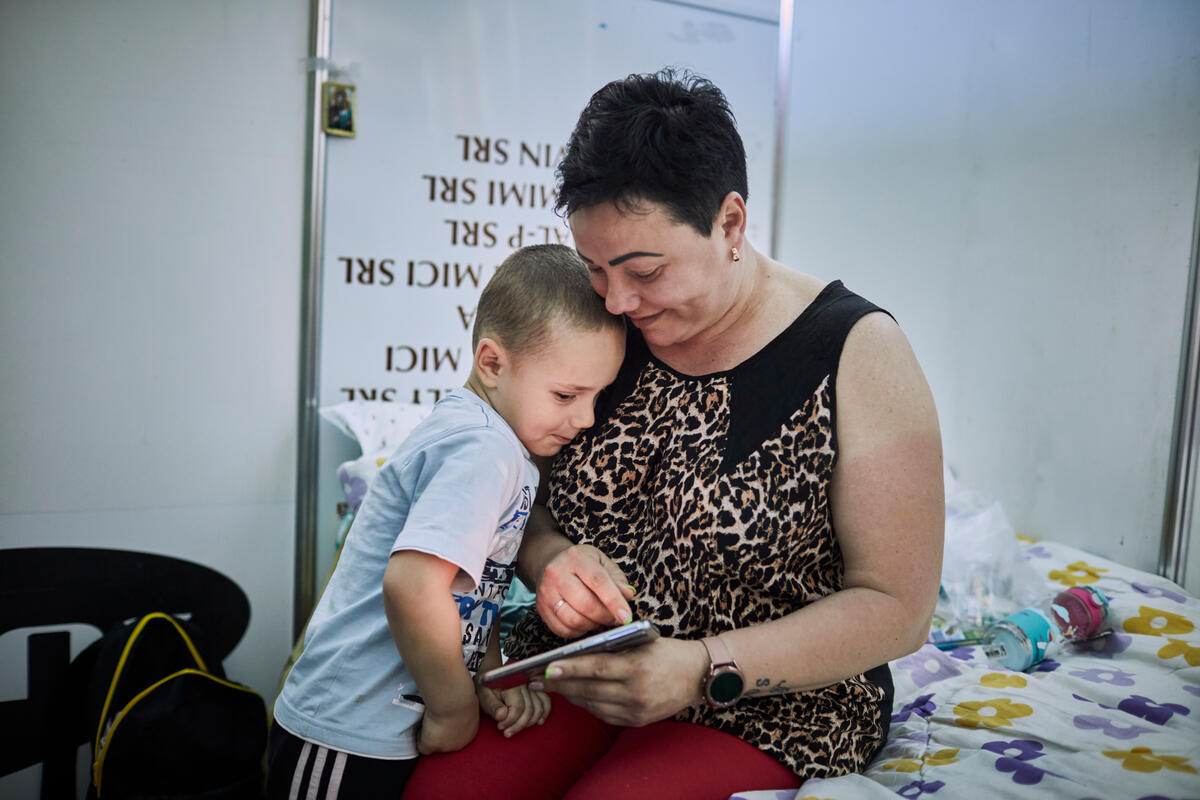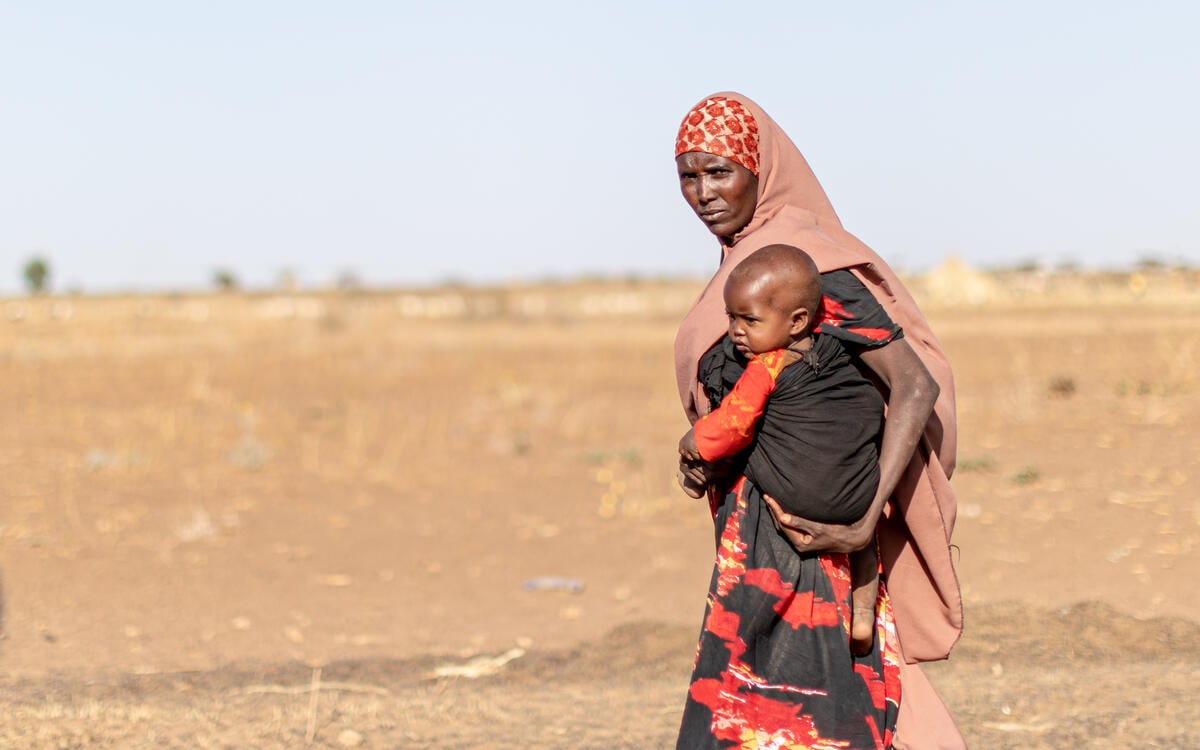Refugee boy flees Congo carrying hidden scars of violence
Refugee boy flees Congo carrying hidden scars of violence

BETOU, Republic of Congo, February 19 (UNHCR) - The Oubangui River in central Africa is a lifeline for villagers living along its banks. It is a source of livelihood for scores of fishermen, a meeting place for families doing household chores and a place to swim and play for countless children. For eight year old Albert* crossing the Oubangui also represented a journey from violence to safety.
Albert is a refugee from the village of Dongo, located in the troubled Equateur province of northwest Democratic Republic of Congo (DRC), where brutal tribal clashes erupted over fishing and farming rights as he was playing with friends by the river in October 2009. It was late afternoon when the group suddenly heard loud and repeated gunshots. Frightened villagers began running in all directions. Scared and confused, Albert fled, managing to grab the hand of a man who was trying to help him. As shooting intensified the man speeded up, leaving Albert alone.
"I wanted to run home but there were more and more gun shots. I got scared so I hid in a house behind a well," Albert recalled. "There were many other people hiding there too and I started peeking around to see if there was someone I knew, but I didn't recognize anyone. We were hiding for days and then one man took me to a house with armed people."
The man turned out to be the leader of the militia group responsible for the violence and for two months Albert was held captive. Though he says he was not mistreated, he longed for his family. An assault on the militiamen by army troops provided an opportunity to escape. He and another villager wandered for hours before ending up by the Oubangui River, which forms the border between the DR Congo and the Republic of the Congo. A local fisherman carried them in his canoe across the river to the safety of the village of Eboko on the opposite bank.
Two weeks after his arrival, UNHCR was able to reunite Albert with his mother, who the agency had found living 50 kilometers further north in the town of Betou. Today their home is a seven-room school building which they share with 170 other refugee families. The families hope they will soon be able to move into a nearby refugee site being constructed by UNHCR.
By the time Albert made it to the Republic of the Congo, tens of thousands of other people from his home and the surrounding villages had also sought refuge in the country to escape the violence. The refugees reported that the militiamen had shot and raped civilians while torching their homes.
Since early November last year, some 108,000 refugees have sought refuge in northern Republic of Congo to escape ethnic violence and tensions across the border in the Democratic Republic of Congo. Like Albert, most have been traumatized by what they experienced. UNHCR together with other humanitarian organizations are working to provide the psychological care they require.
"Albert has been scarred by the killing he witnessed," said Maguelore Arsac, a UNHCR Protection Officer who has worked closely with Albert and his family. "His mother told me that he has stopped playing, that he doesn't laugh anymore and sometimes he doesn't eat. She feels that he has lost his childhood and become serious like an adult.
"Hundreds of children were separated from their family during their flight from the Equateur" Arsac added, "but none that I met have experienced as much trauma as Albert. Now that we have been able to reunite him with his family, we are working to give him his childhood back."
*Name changed
By Fatoumata Lejeune Kaba, in Betou








